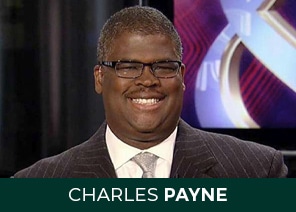So…how much money will you really spend in retirement? Probably a lot more than you think, says Dan Ariely, the James B. Duke Professor of Psychology and Behavioral Economics at Duke University writing in the Wall Street Journal.
Ariely conducted an in-depth study of spending patterns after retirement to test the theory that a couple will only need 70 percent of their pre-retirement income, POST retirement.

Replacing the income you had from work is the beginning point of a smart retirement plan. Without ample income in excess of your expenses, you will be spending down your life savings and always be wondering if you are investing the right way and worrying if you are going to run out. If a few bear markets come your way followed by some inflation, higher taxes, a recession plus long term care issues, you could end up spending a lot more than you think.
If you spend $7,000 dollars a month for example, that equates to over $80,000 dollars a year in 2021 dollars. If you are in your sixties and your spouse is in her fifties, you may need income for thirty years, but SHE may need income for FORTY years.
$80,000 times thirty is $2.4 million dollars. $80,000 (thousand) times FORTY is $3.2 million. That’s WITHOUT inflation! SO, will your spending go DOWN in retirement? Not likely.
Ariely’s research turned up what I’ve learned in twenty plus years of retirement planning–In the practical real world, post retirement spending is no different from pre-retirement spending for most people with six and seven figure portfolios. You are going to keep being YOU.
How spending may increase in retirement
In fact, your spending may increase because you have time on your hands, every day is Saturday, and you may want to travel more. The only game changers are paying off mortgages and cars. That can help greatly in reducing your monthly bills. However, more and more people are retiring WITH a mortgage. With interest rates this low, it may make sense to refinance even if you are retired–if the lump sum payoff would strap you. If you have a small balance with high mortgage payments, paying it off is practical, but only if the balance is small.
Most people tend to UNDERESTIMATE what they spend every month, with all factors taken into consideration. In retirement–and certainly once we are past COVID– you may find yourself traveling more, eating out more, and spending more on entertainment.
To find out what percent of salary people actually will need in retirement—Ariely asked participants specific questions about their planned lifestyles and preferences in retirement. He then attached reasonable numbers to their preferences and computed a shocking number…it came to 130%!—meaning the participants would have to save nearly double the amount they originally thought!

Social Security Is Not Enough To Live On, Interest On Bonds: Far Too Low
What about you? Do you have enough to retire? Will unforeseen but inevitable recessions, market crashes, inflation, and Social Security going broke (as projected by the U.S. Government) torpedo your income in your later years?
Would you like a plan that preserves your retirement income for life, prevents losses permanently and pays you a fixed income rate of 5% to 9%, (depending on age and deferral period) guaranteed until both you and your spouse pass away? The old 60-40 stock-bond approach is a non-starter in today’s environment. The market is too near a top, and interest rates are too near a bottom. You are wise to find ways to put math and time ON your side rather than working against you.
Is your 401(k) enough to last?
How do smart people fail in retirement? By ignoring the INCOME factor. While you are contributing to a 401(k) you are BUILDING wealth by paying IN when the market is down. But when you retire, you are no longer contributing. You stop “buying” on the dips, and start selling on the dips. The market won’t keep climbing forever. One day it reverses. Seriously-what’s your plan? Do you have one that you can count on in any kind of market–up or down– and is it written? If you feel the future is a bit cloudy, it may be because you don’t have a plan you can truly believe in. It’s time to end the worry. I help people retire and stay retired with far less money than they thought possible.

With the Smarter Bucketing approach to your money, you can put a firewall between the money you can never afford to lose under any circumstances, and the money you want to keep working in the market. THAT is smart retirement planning without all the risk, and without all the stress.
When markets get risky, smart investors turn to safer, INCOME PRODUCING assets to anchor their portfolios. In the past, bonds from government sources provided that anchor with a great deal of safety and a six or seven percent return. It was a no-brainer! But today, the yield from government bonds is more like one or two percent.
Why wait for a calamity to occur to make a change?
A half million in ten year treasury bonds today will yield about six or seven thousand dollars a year. No one can live on that and no one wants to tie up money long term for rates this low. But a half million in a properly selected high income low cost NEXT GENERATION index annuity from an A+ legal reserve carrier can pay you and your spouse from twenty-five thousand to fifty thousand dollars annually FOR LIFE, depending on age and deferral period.

How safe are annuities?
Through wars, depressions, market crashes, and world calamities, a select group of legal reserve life insurance companies have paid steady income without missing a beat and without losing a penny of investment money for the annuity owner.
At IQ Wealth, we believe smarter planning is the key to a more trouble-free retirement. Our unique process, Smarter Bucketing™ and our exclusive 40-40-20 allocation system helps our clients simplify and clarify their finances. Bucket planning is a common-sense system of allocating money according to its purpose. When each dollar in your portfolio has a job to do–and a timeline for getting it done–your financial plan is more clear and realistic. You stop investing with emotion and start investing with a plan. You retirement goes from FOGGY to clear and concise.

Today’s crazy markets and low interest rates are leaving many folks wondering where and how to allocate their money. Rather than placing faith in the whims of the market, AND IGNORING FIXED INCOME, the IQ Wealth approach is clearly defined and systematic. The best time to get your ducks in a row is before the next market reversal.












